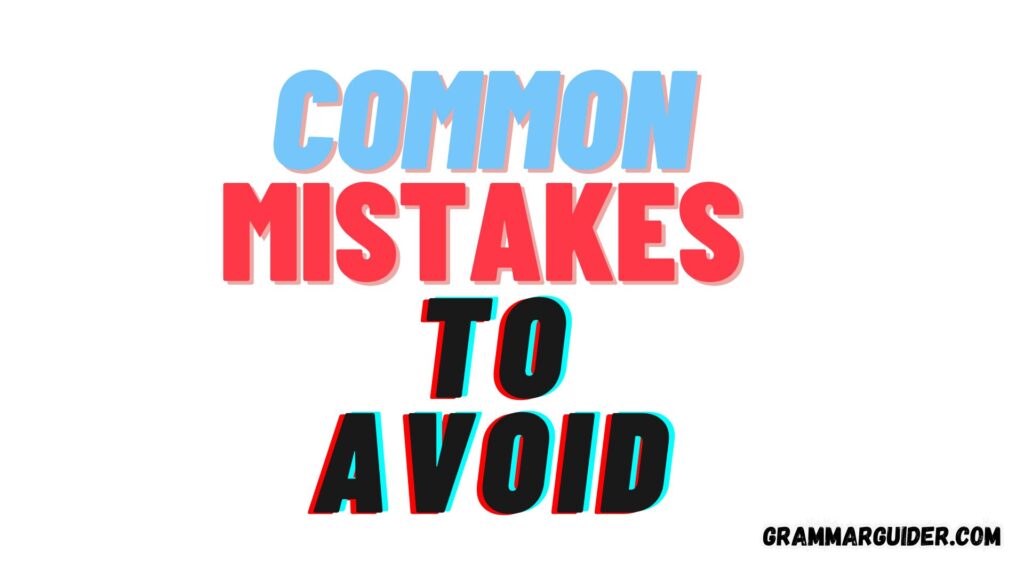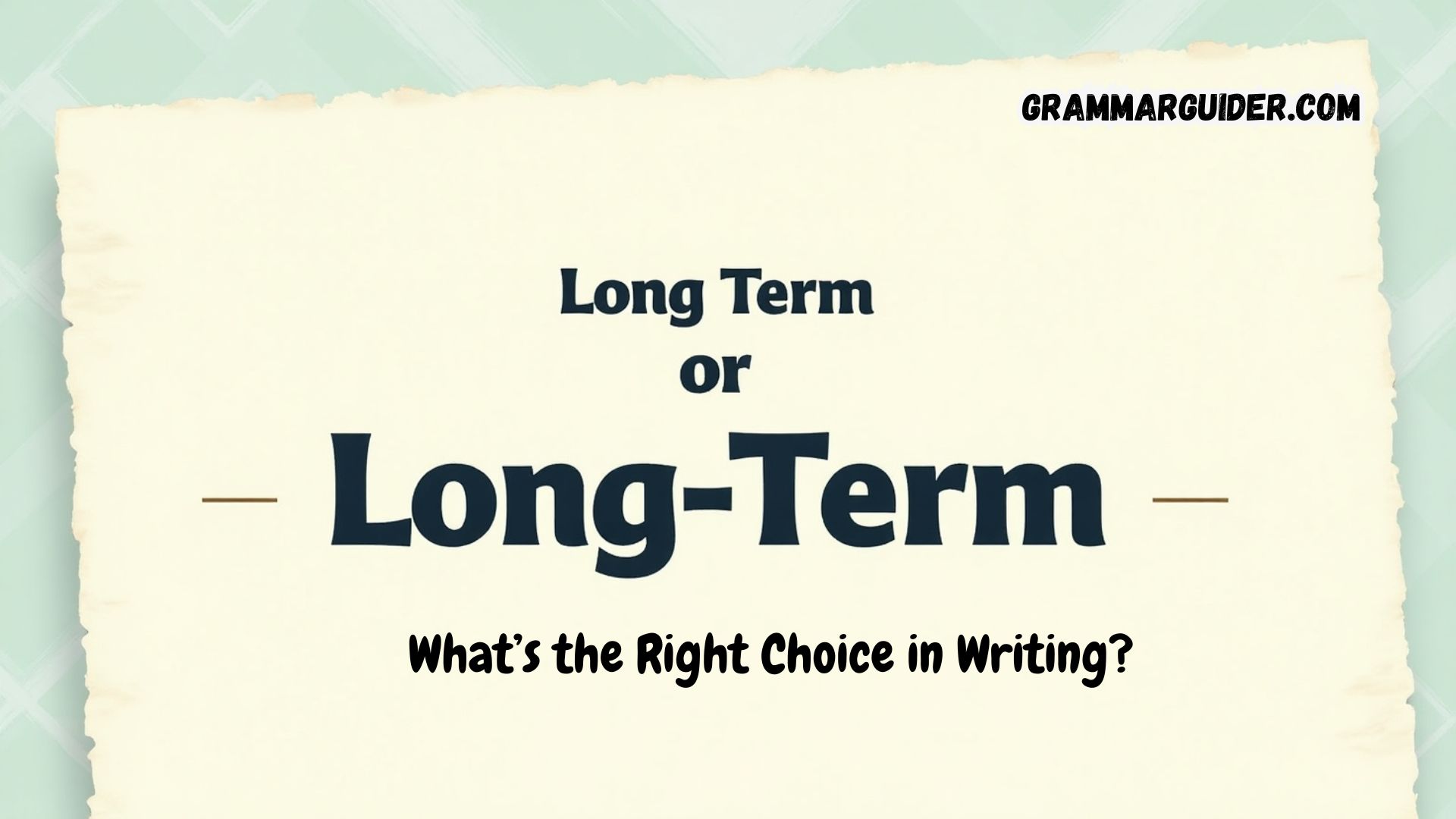When it comes to writing, clarity is key. Whether you’re drafting an email, composing an essay, or putting together a business report, every choice you make should enhance the overall writing precision. One such decision that often trips writers up is whether to use long-term with a hyphen or long term without one.
At first glance, the difference may seem insignificant, but understanding when and how to use each form is important for following writing rules and ensuring correct usage.
This article will explore the proper use of long-term and long term in various writing scenarios, help you avoid common mistakes, and explain why hyphenation matters in achieving writing clarity.
What Is the Difference Between Long Term and Long-Term?
The distinction between long-term and long term is primarily based on their grammatical function within a sentence. In short, when you’re using the phrase to describe a compound adjective (an adjective made up of two or more words), you use a hyphen. When it’s a noun or refers to a general timeframe, you don’t need the hyphen.
1. Long-Term (with a Hyphen)
When long-term is used as an adjective to modify a noun, the hyphen is necessary to indicate that the two words work together as a single, unified idea. This helps prevent confusion by showing that the extended period is being used to describe something specific.
Example Scenario 1: Email to a Colleague About Investment Strategies
Let’s look at an email where long-term is used in the correct context:
Subject: Long-Term Investment Strategies for the Next Quarter
Hi Sarah,
I hope you’re doing well! I wanted to touch base regarding our long-term investment strategies for Q2. As we both know, these strategies require careful planning, and I believe we can achieve a good return if we focus on long-term goals rather than short-term gains.
Please let me know when you’d be available to discuss further.
Best regards,
John
In this scenario, long-term investment strategies refers to a specific set of plans or approaches that will span a long-term period. Here, the hyphen clarifies that “long-term” is a single adjective modifying “investment strategies.”
2. Long Term (without a Hyphen)
On the other hand, when long term is used as a noun or as part of a business strategy without modifying another noun, you don’t use the hyphen. It simply refers to an extended period or a timeframe.
Example Scenario 2: Business Report on Goal Setting
Now, let’s examine a scenario in a business report where long term is used without a hyphen:
Subject: Long Term Planning for the New Fiscal Year
The company has established a long term plan to diversify its product offerings. This plan spans several years and is designed to increase market share over time. Long-term goals include expanding our presence in international markets and developing sustainable products that align with evolving consumer demands.
In this case, long term refers to a timeframe or the overall scope of a business plan. It is used as a noun to talk about a timeframe rather than as a compound adjective. Because it’s not modifying a specific noun here, there’s no need for a hyphen.
Understanding the Grammatical Rules
When applying hyphenation, it’s crucial to recognize the distinction between adjectives and nouns. The key grammatical rule is:
- Hyphenate when using long-term as a compound adjective.
- Leave the hyphen out when using long term as a noun.
This rule aligns with other common grammar conventions in English. Hyphenating compound adjectives ensures that your writing is precise and unambiguous. It also helps with the readability and clarifying meaning for your audience.
Compound Adjectives and Hyphenation
More Examples of Compound Adjectives with Hyphens
- A well-established business
- A user-friendly interface
- A high-quality product
- A fast-growing company
In each of these examples, the hyphenated phrases are functioning as adjectives to describe specific nouns. The same applies to long-term when it precedes a noun.
Scenario Examples for Long-Term vs Long Term
Let’s explore some more examples to help further clarify the correct usage of long-term and long term.
Example 1: Personal Email on Goal Setting
Subject: Setting Long-Term Goals for the New Year
Hi Amanda,
As we begin the new year, I’ve been thinking a lot about my long-term goals and how I can stay focused on them. It’s easy to get distracted with short-term tasks, but I know that success requires sustained effort over a long-term period. I’m excited to start this journey and would love to hear your thoughts on how you’re approaching your goals for the year.
Best,
Claire
In this email, long-term goals is used as a compound adjective modifying “goals.” The hyphen shows that it refers to goals with a specific timeframe in mind, extending over an extended period.
Example 2: Internal Business Email About Strategy
Subject: Long Term Business Strategy Update
Dear Team,
As we discussed in the last meeting, our long term strategy focuses on growth in the Asia-Pacific market. This approach will take several years, but we believe it’s critical for the future of our business. We will provide regular updates as we move forward.
Thank you,
James
Here, long term is used as a noun, referring to the overall timeframe of the business strategy. The lack of a hyphen indicates that it’s not a compound adjective in this context.

Common Mistakes to Avoid
Even experienced writers occasionally fall into the trap of using long-term and long term incorrectly. Let’s take a closer look at some common mistakes:
- Incorrect: “We need to focus on our long-term over the next year.”
Correct: “We need to focus on our long-term goals over the next year.”Here, long-term is used incorrectly as a noun without modifying anything. It should be a compound adjective describing “goals.” - Incorrect: “The long term investment strategies are paying off.”
Correct: “The long-term investment strategies are paying off.”In this case, long-term is used as an adjective, and the hyphen is needed to clarify its meaning.
Clarifying Meaning: Hyphenation Makes a Difference
While the grammatical rules around long term and long-term might seem simple, incorrect usage can confuse your readers. Hyphenation in compound adjectives ensures that you are communicating your ideas precisely and clearly.
The Role of Hyphenation in Professional Writing
In professional writing, such as emails to clients, business reports, or formal proposals, accuracy is vital. Inconsistent or incorrect hyphenation can make your writing seem careless, which can lead to misunderstandings or misinterpretations. Let’s take a look at how proper usage can elevate your writing.
Example: Professional Business Email
Subject: Long-Term Business Goals and Strategy
Hi Richard,
I hope you’re doing well. I wanted to follow up on our previous discussion regarding long-term business goals. We need to ensure that the long-term strategy is clearly defined to align with our business strategy for the upcoming fiscal year. I’ll send over some documents shortly that outline our progress.
Best regards,
Elizabeth
In this email, the use of long-term business goals with a hyphen ensures that the term is understood as an adjective describing the noun “goals.” By adhering to the proper grammar and writing rules, Elizabeth’s email remains professional and precise.
Table of Usage: Long-Term vs Long Term
| Phrase | Grammatical Function | Example Sentence |
|---|---|---|
| Long-term | Adjective (compound) | “We need to focus on our long-term goals this year.” |
| Long term | Noun | “The long term is critical to our investment strategy.” |
| Long-term | Used with a noun, modifying | “The long-term strategy will guide our decisions over the next five years.” |
| Long term | General timeframe | “The long term will require careful planning and execution.” |
Conclusion
Understanding when to use long-term and long term can improve your writing clarity and ensure that your message is communicated accurately. By following the writing rules for hyphenation, you can avoid common mistakes and enhance the professional writing quality in both business and personal contexts. Remember:
- Use long-term with a hyphen when it functions as a compound adjective.
- Use long term without the hyphen when it serves as a noun or refers to a general timeframe.
Whether you’re discussing goal setting, investment strategies, or business strategy, choosing the right form will keep your writing precise and your meaning clear.

Harley Rose is a seasoned expert in English grammar and writing tips, blending years of knowledge and a love for language into her work. With a sharp eye for detail and a talent for making grammar accessible, Harley shares practical insights that help readers write with precision and flair. Her content is ideal for anyone looking to strengthen their writing skills and express themselves with confidence.

